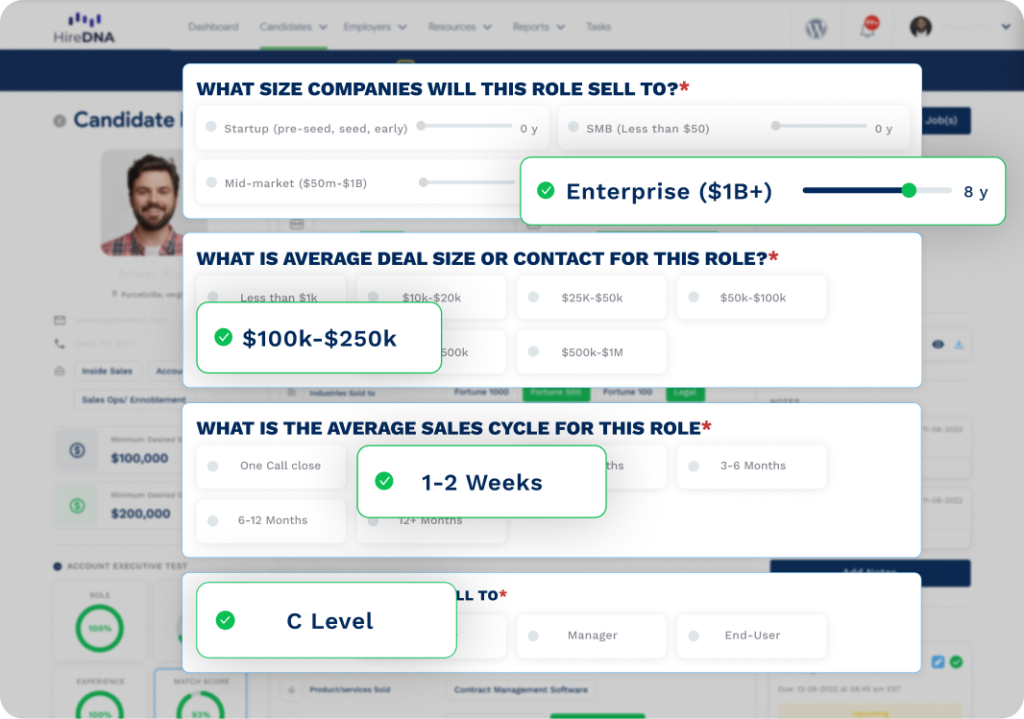
In the cutthroat world of sales, hiring the right people can mean the difference between skyrocketing success and abysmal failure. Yet, time and time again, companies find themselves stuck in a vicious cycle of hiring the wrong candidates. If you’ve been scratching your head wondering why your recruitment efforts keep falling short, fear not. You are not alone. Here are seven common mistakes you may be making, along with solutions:
Mistake 1: Not Defining Your Ideal Candidate
Research from LinkedIn reveals that companies with clearly defined candidate profiles are 28% more likely to attract top talent. However, many companies still struggle with vague job descriptions and unclear candidate criteria. Without a precise idea of who you are seeking, you are essentially taking shots in the dark, hoping to chance upon a suitable match. Take the time to pinpoint the essential traits, skills, and experiences your ideal sales candidate should possess. This will not only streamline your sales recruitment process but also enhance the chances of finding the right person for the job.

Mistake 2: Too Many Cooks in the Kitchen:
A study by Harvard Business Review indicates that involving too many individuals in the hiring process can significantly prolong the time it takes to fill a position, resulting in missed opportunities and increased expenses. When numerous decision-makers with conflicting agendas and criteria are involved, things can easily go awry. To prevent this, simplify your sales hiring process and ensure everyone is on the same page. Clearly define roles and responsibilities, establish transparent communication channels, and set expectations from the outset.
Mistake 3: Interview Process Taking Too Long
Time is of the essence, particularly when hiring top sales talent. Despite this, research by Glassdoor shows that the average interview process in the United States lasts 23.7 days. This extended timeline not only frustrates sales candidates but also raises the risk of losing them to competitors. Streamline your interview process by focusing on the most relevant criteria and eliminating unnecessary steps. Remember, quality outweighs quantity.

Mistake 4: Lack of Transparency
Transparency fosters trust, which is vital in any successful relationship, including the employer-employee dynamic. According to a survey by CareerBuilder, 61% of candidates stated that a lack of transparency regarding salary and benefits would make them less inclined to accept a job offer. Be forthright and upfront about critical aspects of the job, such as expectations, salary, benefits, and opportunities for career advancement. This not only establishes clear expectations but also attracts candidates genuinely interested and aligned with your company values.
Mistake 5: Poor New-Hire Onboarding
The sales hiring process does not conclude once the offer letter is signed; in reality, that is just the beginning. Nevertheless, a report by Aberdeen Group reveals that 86% of new hires determine whether to stay or leave a company within the first six months. Without a structured onboarding process, new salespeople are left to navigate on their own, resulting in confusion, frustration, and ultimately, high turnover. Develop a comprehensive onboarding program that equips new hires with the training, resources, and support they need to hit the ground running.
Mistake 6: Unrealistic Expectations and Metrics
While metrics are crucial for evaluating sales performance, relying on unrealistic expectations and arbitrary metrics can be detrimental. According to research by CSO Insights, only 54.6% of sales reps meet or exceed their quotas. Instead of relying on guesswork and outdated metrics, take the time to define meaningful KPIs that accurately reflect success in your organization. Set realistic targets based on historical data and industry benchmarks, and adjust them as needed to ensure they remain relevant and attainable.
Mistake 7: Not Using a Sales Skills Assessment:
One of the biggest mistakes companies make in their sales hiring process is failing to assess candidates’ actual sales skills. According to a study by Objective Management Group, 92% of salespeople do not have the consultative selling skills to succeed in today’s market. Without a proper assessment, you’re essentially rolling the dice and hoping for the best.
Incorporating a sales skills assessment into your hiring process allows you to objectively evaluate candidates’ abilities in areas such as prospecting, presenting, closing deals, and handling objections. This not only ensures that you’re hiring candidates with the right skills for the job but also provides valuable insights for coaching and development once they’re onboard. By leveraging sales assessments, you can make more informed hiring decisions and build a high-performing sales team that drives results.

In conclusion, recruiting and hiring top sales talent is undoubtedly challenging, but it is achievable. By avoiding these common mistakes and embracing a more strategic and systematic approach to hiring, you can attract, retain, and empower the salespeople essential for your company’s success in today’s competitive landscape.
Looking for help recruiting top sales talent? HireDNA can create a digital profile of your ideal rep and sourced candidates who are the perfect match with 91% accuracy. Schedule a demo to learn more.
Image Source: Edmond Dantès (https://www.pexels.com/)